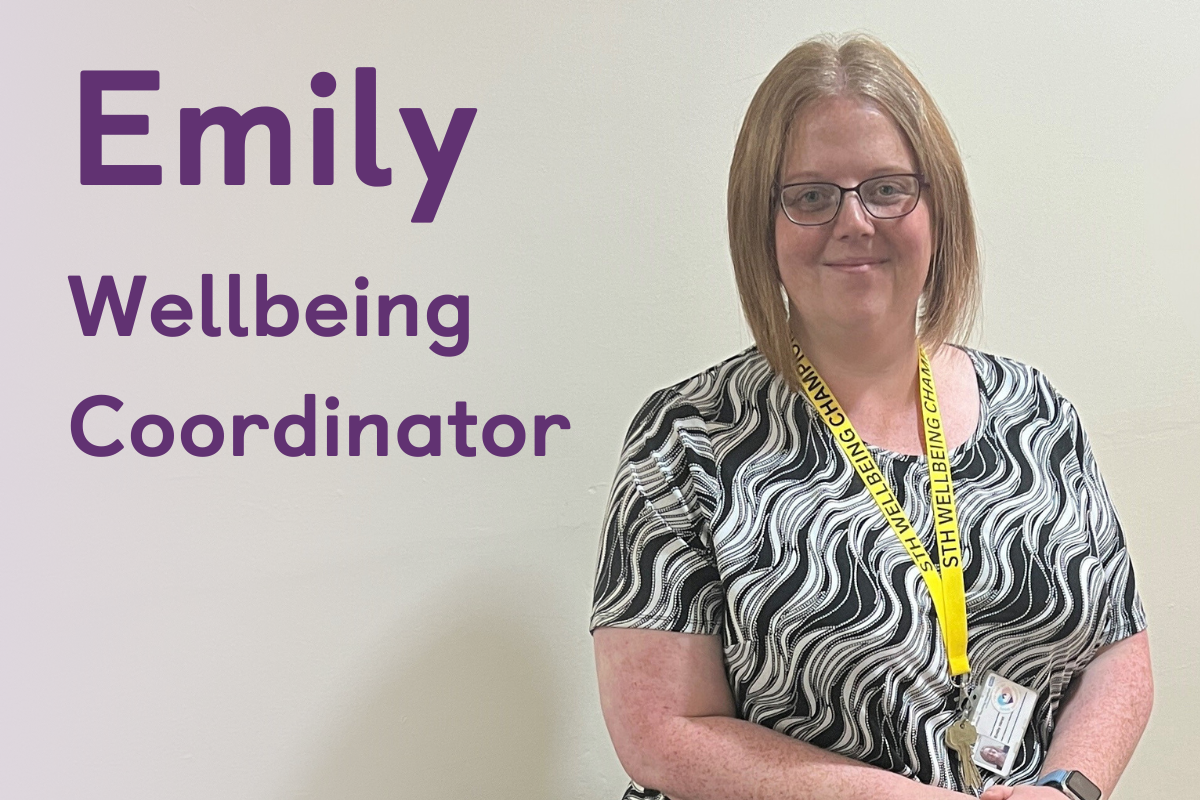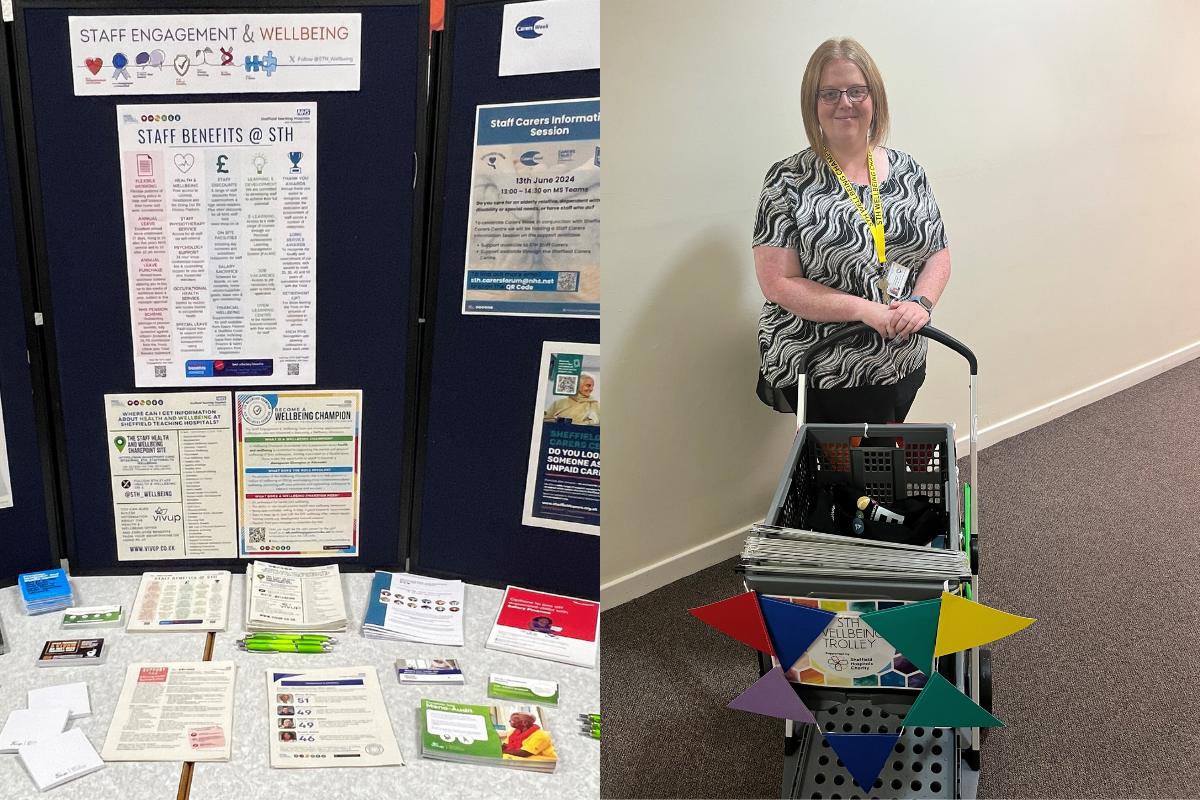
The 10th October is World Mental Health Day, and the theme set this year is Workplace Mental Health. To mark this important day, we spoke to Emily, a Staff Engagement and Wellbeing Coordinator whose work is funded by the charity. Thanks so much to Emily for taking the time to talk about the importance of addressing mental health and wellbeing within the NHS, and the amazing ways she helps those working across Sheffield’s hospitals.
Can you tell us a bit about your role as Wellbeing Coordinator?
My role as Wellbeing Coordinator is to work across Sheffield Teaching Hospitals (STH) to actively promote the wide range of emotional physical and financial wellbeing support available to STH staff. I recruit and train Wellbeing Champions to promote wellbeing amongst their colleagues to help reach frontline staff, as well as delivering sessions at inductions for newly qualified nurses/ AHPs, junior doctors and clinical support workers, team meetings, and more.
Why is it so important for NHS staff to look after their mental health?
Many NHS staff work in a highly pressurised environment and their work is complex, intense, and often emotionally challenging. This can understandably impact on their mental health, which makes it even more important that they look after their mental health. As an accredited Mindful Employer we have a lot of Mental Health support available for staff, but as a large multi-site organisation we need to make all our staff aware of this to enable them to be proactive about looking after their wellbeing. Research has also shown that looking after the health and wellbeing of NHS staff is essential to the quality of care they provide for our patients.
What are some common misconceptions people have about mental health, and how do you address them in your work as Wellbeing Coordinator?
One of the most common misconceptions I encounter is a belief that people only have mental health when it’s poor mental health, when in fact mental health is just like physical health. We all have it and we all need to be proactive about taking care of it, and not wait until our mental health is suffering to seek help. In my role I work hard to raise awareness of the importance of self-care, and find it helpful to use the analogy ‘you can’t pour from an empty cup’. Many staff are also unaware of the link between menopause and mental health, which in a predominantly female workforce is an important factor.

Left: Wellbeing Notice Board, Right: Emily with STH Wellbeing Trolley
Have you experienced any particularly rewarding moments?
The most rewarding moments of my work are when I am able to reach busy frontline colleagues and share information that will make a real difference to them, their mental health and ultimately their ability to deliver high quality care to our patients.
Have you faced any challenges in your role?
NHS staff are incredibly busy delivering patient care which can make reaching them difficult as they don’t have time to read emails or attend awareness events. Our network of over 330 Wellbeing Champions are instrumental in helping to reach busy clinical colleagues, as is the Wellbeing Trolley which I use to visit staff in their work areas – taking the information to them and providing an opportunity for conversations that are tailored to the individual. I also develop posters for notice boards for staff rooms etc, and have stalls at events.
Do you have a memorable success story or a particularly impactful moment from your work with patients and staff?
I regularly have staff come back to me and share the impact that the information I’ve shared with them has had. One occasion in particular stands out, when a staff member came back to me a couple of months after we spoke and shared their gratitude for the support they received - they said that without it they would certainly have been unable to continue in work. There is nothing more rewarding than knowing that what you did made a difference.
What does the support from Sheffield Hospitals Charity mean for the STH Staff engagement and wellbeing team?
The support from Sheffield Hospitals Charity has made a significant difference to the Staff Engagement and Wellbeing Team. It has meant that we have been able to train over 330 wellbeing champions who can help us raise awareness of the wellbeing support available to our busy clinical staff, as well as providing wellbeing and resilience training sessions for all staff which we know in turn has a positive impact on patient care.
Published: Thursday 10th of October 2024